10 Master Hotel Booking Tips: 10 Tips and Secrets to Save Money

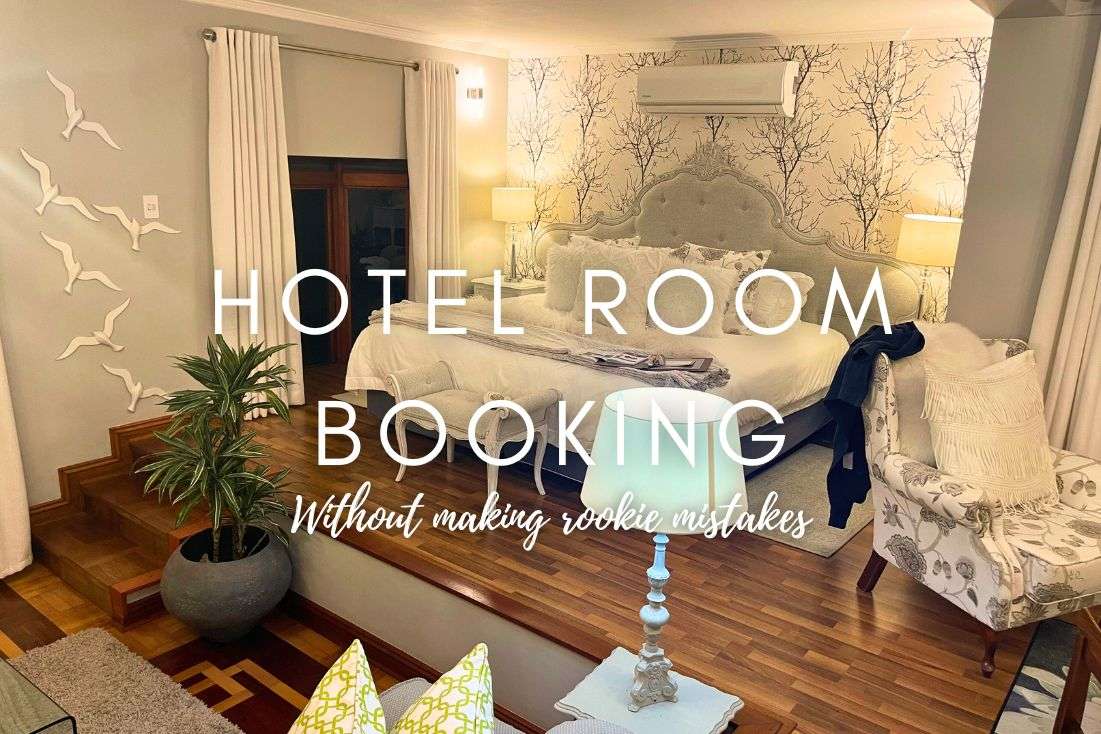
For me, booking a hotel is the first step to feeling like the vacation is really happening. Once I have that confirmation email, the excitement starts to build, and I know I can get to work researching my itinerary. What will you learn in my hotel reservation tips and tricks, and what are the best hotel booking secrets?
My personal favorite tips for booking a hotel:
-
Book rooms 1 to 2 months in advance to get the best hotel prices.
-
Beware of time zones and late-night departures. Your check-in and check-out dates may not be what you think they are (at first glance, at least)!
-
Consider the country you are traveling to. Some countries, like Japan, are stricter in their reviews, so you can accept lower review scores.
-
When I like a hotel, I save it for later by using the "heart" option on booking.com to come back to it later.
-
I always use booking.com, and you should too!
-
Incognito mode is nonsense. There are no discounts for searching in incognito mode.
-
Whenever possible, travel in shoulder season—hotels get up to 50% cheaper outside of peak tourist months.
-
Always look for rooms of more than 20 sq.m (roughly 200 sq feet). Anything smaller than that guarantees very little maneuvering inside the room. I learnt that the hard way in Scotland.
All these hotel booking tips are from my more than 5 years of travels and over 50 countries visited.
Full disclosure: You know me—I'm all about comfortable hotels, but not about emptying my wallet for them. That's why I'm sharing my actual, tested booking strategies that work. No fluff, no theoretical tips you'll find everywhere else. Just real methods I use to score better deals and keep more cash in my pocket. But I need my sleeping quarters to be comfortable in all aspects, almost like being in the best airplane Business Class in Air France.
If you are not into Business class, you can read more about our Premium Economy reviews for Austrian Airlines, Air France, or KLM.
Btw, I'm assuming you have already booked your plane tickets? I have a great article explaining airline cabin classes that could be just the thing you need to realize you should be upgrading to premium economy!
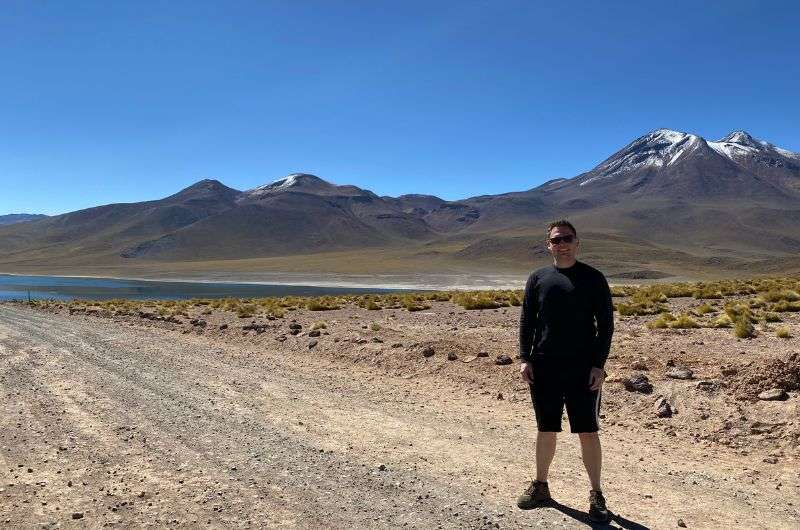
1. When is the best time to book a hotel?
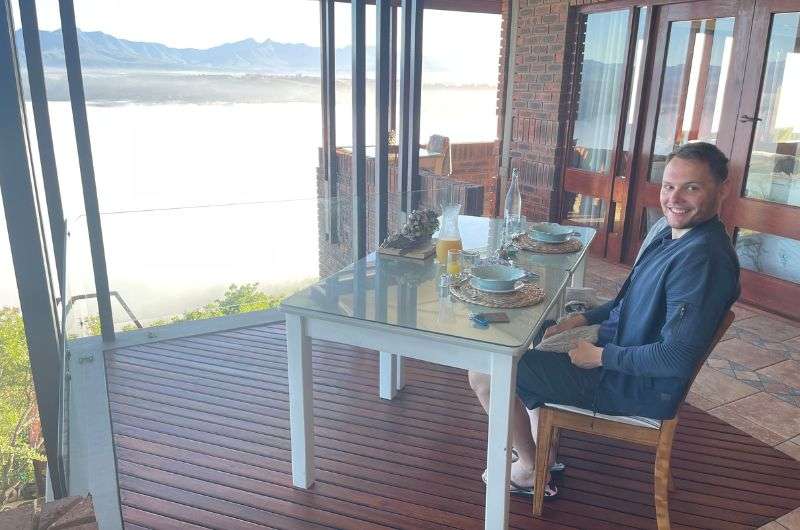
Breakfast with a view along South Africa’s Garden Route. Not a bad way to start the day at Kambaku @ Sea Hotel
Two months before your vacation is when you’ll find the lowest rates. Any date earlier brings higher demand, and as the 2-month magical barrier approaches, hoteliers get scared they won't sell enough rooms and lower their prices.
After that, you can bump into fully booked hotels and overbooked places or rising prices when the date of your vacation approaches. However, if you feel especially adventurous, you can wait until about 1–2 days before your arrival date when you have a chance to snag the very best prices—a chance, not a promise.
Whenever I tried this approach, I had bad luck and ended up with a worse hotel or no hotel at all. However, if you are really lucky, you can get the best hotel rates because they need to fill their empty rooms.
Pro tip: I always plan my itinerary based on my travel dates, and one by one, I fill up those dates with places I am going to sleep so I can avoid the unpleasant surprise of poorly booked hotel dates.
-
What day of the week is best to book a hotel?
KAYAK research shows that a reservation for a Sunday check-in is 7% cheaper than other days. It might be helpful to avoid checking in on Friday, which statistics show is the more expensive day, with prices rising over the average by 8%.
-
Is there a specific date to book a hotel room to save money?
I didn't find any better deals by trying to find the cheapest day of the week or any other nonsense, like Sunday being the most expensive day. I honestly do not believe it exists. However, I believe that dynamic pricing works if you save your hotel booking for later. Then, usually, the booking systems tend to mystify you with full capacities, higher demand, and increasing prices.
Things to check before you book your room:
-
Always book a hotel that has free cancellations up to at least 3 days before your arrival. Unless you are 100% certain that you will arrive, do not pay upfront.
-
When booking a hotel room and traveling internationally, think about whether you're crossing time zones. Or if you're on an evening flight that lands after midnight. Both of these situations could make entering the right arrival and departure dates a little complicated. Or a double whammy—crossing time zones and midnight on one flight?! That little situation has had me scratching my head, staring at my watch on more than one occasion.

Book a hotel in South Africa: check! Stare at the views: check!
The Hotel Pricing Game: How to find the best deal when booking a hotel
Hotels love playing with their prices—I've watched them jack up rates just because there was a tiny festival in town. But once you understand their tricks, you can actually use them to your advantage. Let me break down what I've learned after years of booking rooms all over the world.
How hotels cook up their rates
You wouldn't believe how many factors go into that final price tag. Location is the obvious one—properties charge more just because they can. But here's where it gets interesting: hotels use fancy software that changes prices faster than you can say "book now" based on what's happening in real-time.
These systems are pretty clever—they look at past bookings, what's trending, and how full they expect to be. Plus, they're constantly stalking their competition's rates. Sneaky, right?
Examples of dynamic pricing policies
-
Want to hear something wild? A hotel in Palm Springs figured out they could fill up 20–30% more rooms whenever LA and San Diego had cloudy weather, but Palm Springs stayed sunny.
-
And get this—when airlines see a 13% jump in bookings to a particular place, hotels usually bump up their prices right away.
-
While traveling to Warsaw, I saw off-peak to peak reservation charges change from USD 166 to USD 319 within 3 weeks—on the same day of the week.
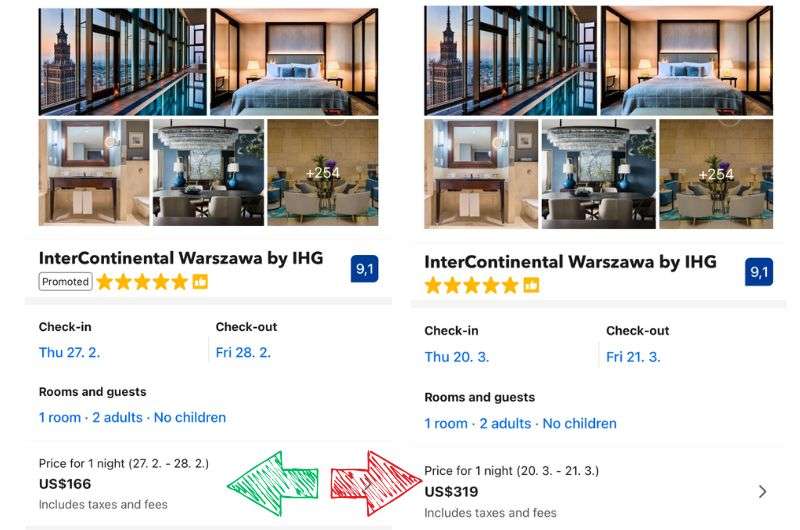
Dynamic pricing in action
The peak vs off-peak dance
This one's pretty simple—hotels charge more when everybody wants to visit (hello, Christmas in New York!), and drop their prices when things are quiet. That hotel room costing USD 200 suddenly jumps to USD 330 during peak season—that's a 67% price hike!
Some hotels only mark about 4% of their calendar as off-peak, 13% as standard, and everything else? Peak pricing. Talk about being stingy with those deals!
Price comparison
Use online travel agencies like Expedia, Booking.com, or Hotels.com to compare prices across different hotels. Don’t forget to check the hotel’s website directly as well; many hotels offer exclusive discounts or promotions that aren’t available on third-party sites. Though, to be honest, I’ve never found any.
That incognito mode myth
Remember when everyone said to use incognito mode? Well, guess what—total myth! Recent studies proved hotels aren't actually tracking your searches to jack up prices. Opening an incognito window? Waste of time.
2. The best hotel booking site is Booking.com—don’t overthink this one
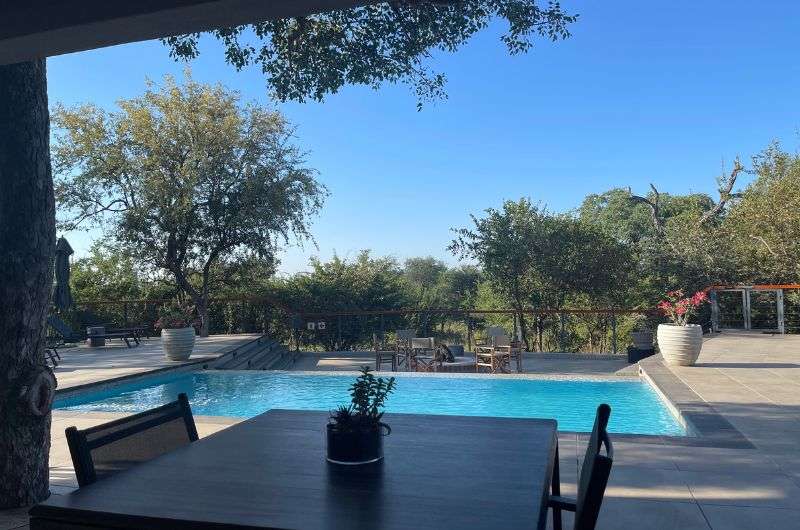
Unbearably hot outside?. Book a hotel with a swimming pool included @ Little Kubu Lodge hotel
The most popular and by far the best hotel booking website is booking.com. In my years of traveling all over the world, I’ve come to love and be loyal to booking.com. I use it every time I travel and will tell you to do the same. You save time by comparing all the options in one place; it’s very well-known, so you know all the hotels are on there. Plus, you save money when you use it regularly, thanks to the loyalty program.
Another advantage is no language barrier. You haven’t been frustrated until you’ve tried to speak on the phone with a Spaniard (no offense). It’s a completely different experience when you have all the information you need in English. Booking.com makes hotels fill in a lot of details, so you will be hard-pressed to still need to ask questions after reading through everything.
Is it worth booking directly through the hotel?
I don’t think so. Hotels usually try to give you the same price they have online on booking.com, and you’d miss out on the customer protection that booking.com provides, and plus you’ll have the hassle of communicating directly with the hotel to figure things out.
If you insist, you can book directly on the website of your chosen hotel. But unless you want that particular one for some special reason—like others from your group are already staying there—be open-minded and snoop around.
Especially if you’re traveling to more far-away places (i.e., not to a major city), you might be missing out on some local gems by staying at a chain hotel. For me, booking.com is always the way to go.
Anyway, booking.com owns about 30% of all other booking sites, so it doesn't really matter what the name of the site is; there’s a good chance booking.com owns it.
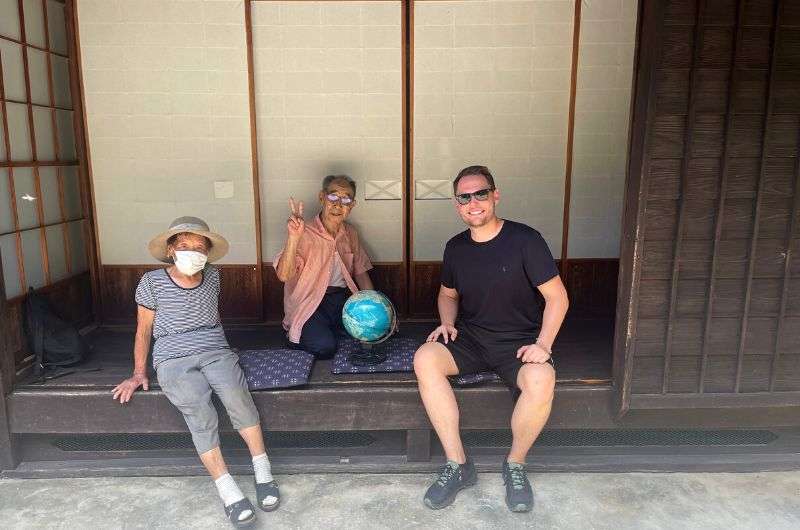
Are you excited to meet locals on your travels?
3. Managing check-in and check-out like a pro

Check out of a hotel and check in to some stunning views!
How do check-in and check-out usually work?
The standard check-in time at most hotels is around 2–3 pm, and check-out is between 10 am and 12 pm. Keep this in mind when booking, and plan your arrival accordingly.
You can request early check-in and late check-out at most hotels, but it is never guaranteed unless you pay a fee. That fee can make you reconsider since you might be able to just wait at a restaurant and have a wonderful lunch for the same price.
Frequent mistakes while checking in
Pro tip: When your time of arrival is after 8 pm, make sure to check the latest possible check-in time on booking.com before you book your room. I've had issues with this before and have myself to do some mad dashes from the airport to make the latest check-in time. Since then, I've learned to check these things beforehand because it's not fun having to wonder if they're even going to let you in.
If you already have a booking: You can find check-in times in your booking.com app, under the reservation right under the name of the hotel. But you can also check with the hotel directly. Sometimes, it differs from what is on the website. For example, one hotel I stayed at in South Africa said check-in until 10 pm on booking.com, but when I contacted them about the info directly, I found out that they have a 24/7 reception.
If you are browsing hotels on booking.com: You will find check-in information when you click through to the hotel info and then scroll down to find "property policies".
4. Tips for canceling your hotel booking
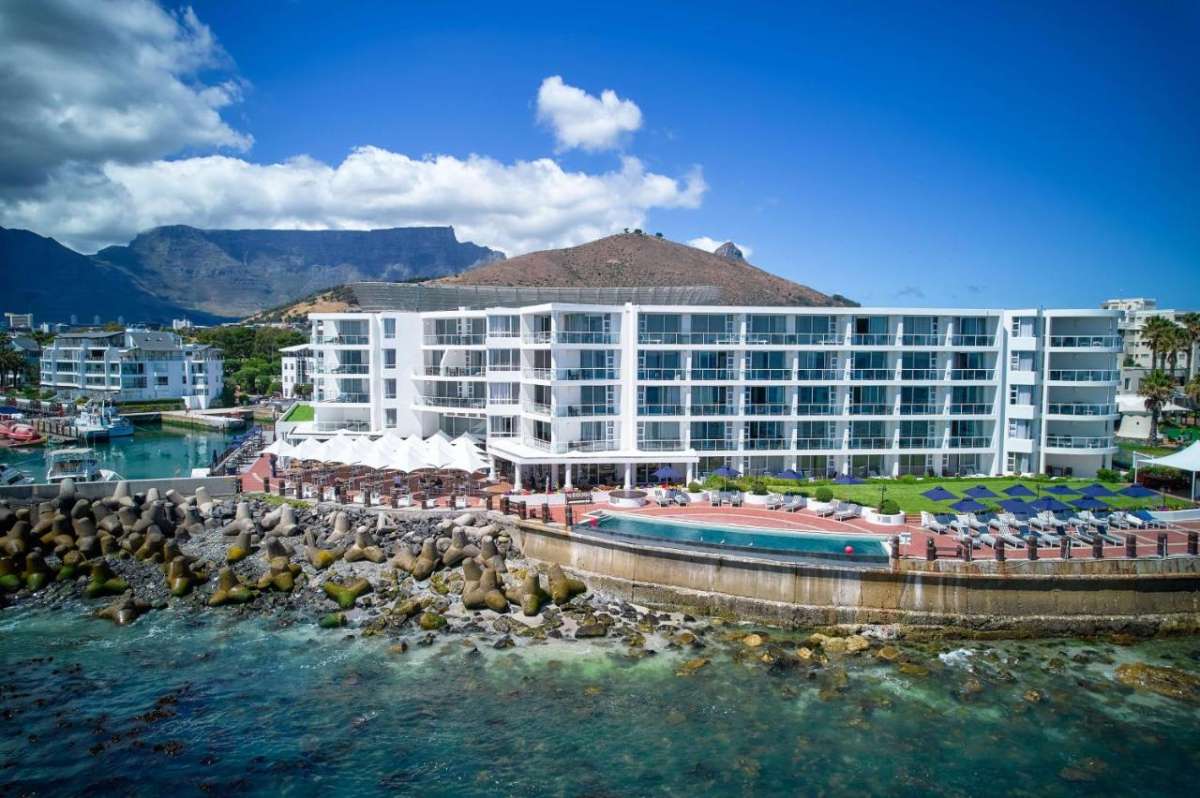
Radisson Collection Hotel, Waterfront Cape Town
If you've already made a reservation on booking.com and you need to cancel it despite it saying there's no free cancelation, you can contact the accommodation directly via booking.com or via their business e-mail. Honestly, I have tried this a few times, and they always let me cancel without any trouble. What other option do they have? They can cancel your payment and reservation or risk forcing you to be "accommodated" and then giving them hell in reviews. That's something any good service provider and generally all bigger hotels do not want to risk.
5. My process for choosing the best hotel room

The top search options on booking.com offer the most popular filters: ratings
A word of warning: I am not a super cautious personality type, so I don’t have this urgent need to go through every single hotel just to choose the best there is, and I am not very afraid of making mistakes for the sake of saving time. The way I filter and choose my hotels is based on efficiency.
I hate to be disappointed about my hotel rooms. Imagine you are looking forward to your hotel stay, and then you find out it is completely different than the false promises they made in the photos.
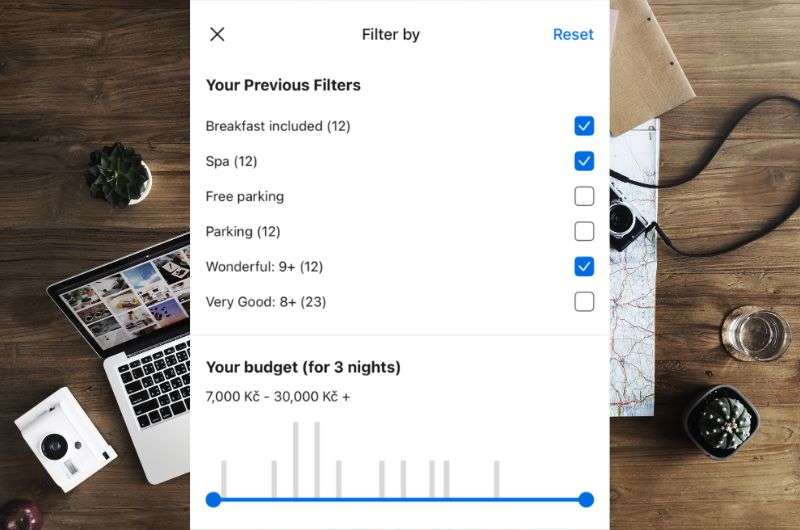
How to set up a search?
My filter always looks like this when I start my search. This is Warsaw, where there are thousands of hotels, and it already narrowed the selection down to only 12 hotels. Imagine how much time I save by using these filters.
My process and the logic behind it
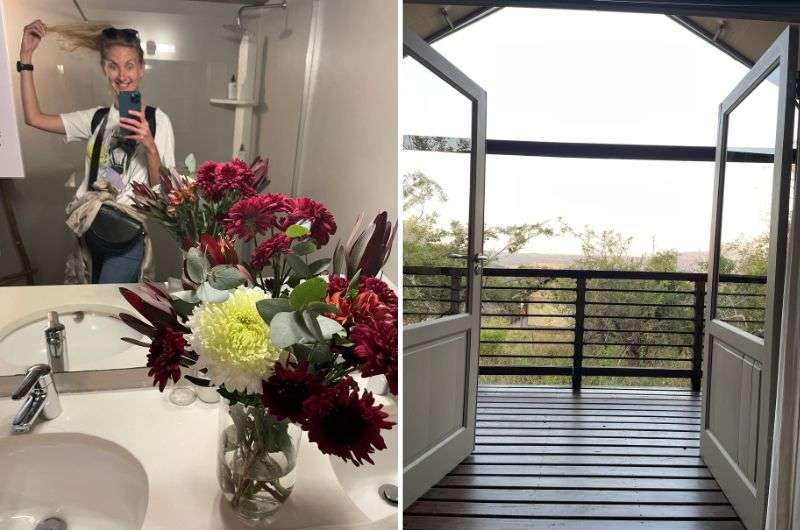
Happy to be staying in Ndhula Luxury Tented Lodge, South Africa
-
Filter for hotels only—I get very annoyed by private owners and the inconsistent quality of all types of bed and breakfasts and other private accommodations. I’m a hotel kind of guy. In cities especially, I like my Hilton and Marriott Hotels.
-
Parking—My hotels have to have parking and preferably free. You can usually get free parking a bit further out of city centers.
-
I don't care about the distance from the center too much—It is usually very little difference in travel time.
-
Check only reviews above a 9.0 score in the filter—see how many there are; if there are more than 20, you know you’ve saved plenty of time by doing this and actually have the best hotels in front of you already. Other people are not stupid, you know, so if you can use their experience, go for it.
-
I prefer a 24/7 reception because I do not want to be stressed about my previous day and the need to plan extra to make sure I get to my new hotel in time.
Whenever possible (specifically in cities), I aim to book an international hotel rather than a domestic one, as the standard is usually more consistent. Additionally, their guarantees are typically better because they work hard to maintain positive booking reviews.
-
Optional: Breakfast included—his option is widely dependent on the number of hotels in the location and whether there are too many. Because only about 20% of hotels have breakfast automatically included, you might limit your options by filtering for this option.
-
Optional: Spa and pool—I prefer hotels with pools as I usually find myself in need of one after a full day of traveling. More likely than not, when I stay at a hotel without a pool, I end up frustrated with my pool-less choice.
-
Optional: 5-star hotels—If I’m still getting a long list of hotels even after filtering for all of the above options, I filter further yet again, this time for 5-star hotels only. This should bring the options down to a manageable number.
-
Secretly optional: separate beds—sometimes I go for two beds instead of one large one “by accident” as I sleep a lot better on my own. My girlfriend does not like this... such an unfortunate mistake.
After going through the above selection process, I just rank them from the best rated and then speed through the photos of breakfasts and hotel room sizes. All suitable contenders are saved for later.
For all the hotels I “hearted”, I will then read the worst reviews and see whether whatever the complaints are would be acceptable to me or not. Extra pro tip: At this point, you can also choose the newest hotels from your list since they will usually be the best.
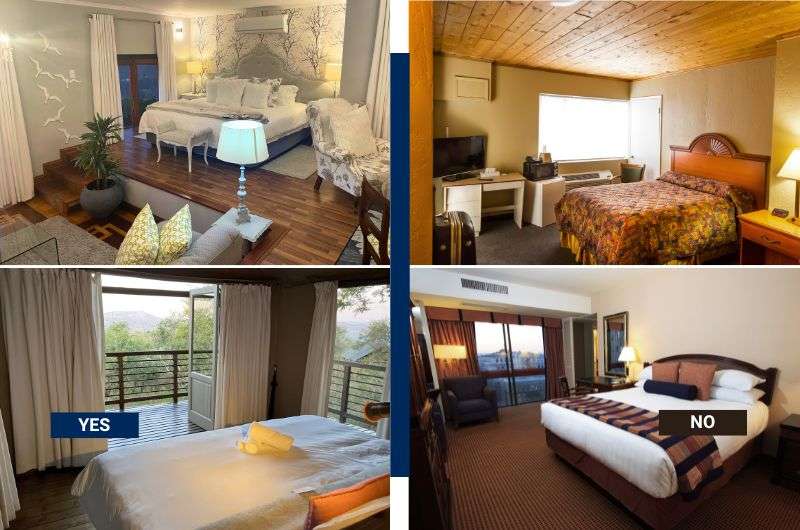
On the left: Ndhula Luxury Tented Lodge and Kambaku @ Sea, both in South Africa—good rooms I would choose vs. on the right: bad rooms I would not choose
What to look for in photos and hotel room description
I always look at a few specific things when choosing my room:
-
What does the breakfast look like? Does it look appetizing? Is there a wide variety of options?
-
Room size: always 20m2+ (215 sq ft+)
-
Window shades: Do they actually block out all the light, or am I going to wake up at 5 am because someone cheaped out on blackout curtains? Look for gaps—sides, top, bottom.
-
How new is the room? How can you tell? By looking at the carpet, you will know a new one when you see it— if it’s stained or worn, it’s past its prime. Then check the bathroom—is it modern and well equipped?
When a room checks all these boxes, I know it is the way to go.
What am I looking for in the worst reviews?
Generally, I will scan bad reviews for the things that could bother me. Examples of these are:
-
Was the reception staff rude? Too many of this type of complaint is a hard no for me.
-
Has anyone experienced getting charged extra without authorization? Red flag.
-
Lack of options at breakfast.
-
Problematic cleaning services—like entering the room without knocking. Big red flag.
-
Any mention of loud rooms or too much light in the room at night. Jan needs his beauty sleep!
All the above are basically a no-go for me.
A good sign is if I see a bunch of hysterical, nonspecific reviews. There will always be customers like that no matter what the hotel, so I don't pay attention to those drama queens.
You will always find some disturbing reviews, but then you opt for the least disturbing.
My observation about guest ratings
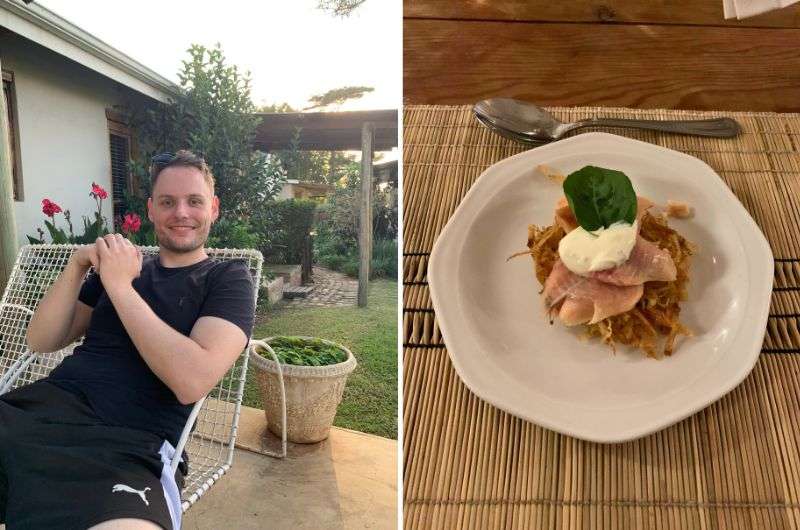
Dalmore Guest House, South Africa
This might be the most useful of all the filter options. Guest rating is usually a part of all good hotel search engines. The scale can vary, but booking.com uses a 1 to 10 scale, with 10 being the top and 1 being a total flop.
Anything less than a 9 should be a second choice after you take a look at those 9ers. Aim for 9 or higher if you want to be sure you’re booking a good-quality hotel.
Be aware that the more expensive the hotel is, the higher the standard that guests expect and the stricter they are in their reviews. If you’re going for a 2- or 3-star hotel and see a 9.5 review score, you’re still getting a 2- or 3-star hotel.
But at a 5-star, guests aren’t afraid to focus on that not-crunchy-enough croissant they had for breakfast and take the rating down a whole point for it. So, the higher you aim, the lower you can afford to go with guest review scores. I would say 8/10 is reasonable.
It also wildly depends on the country you are traveling to. For example, the Japanese and Israelis are very strict in their reviews, so you can opt for even lower review scores, and you will get the same level of service as you'd get in other countries at 9/10 reviewed hotels.
Google Maps is another place to look for reviews. Just find the property you are looking at on the map, click on it, and read through the experiences on the left side panel. You’ll also find the best photos here.
Both of these last options also include candid user photos, which can sometimes be an interesting contrast to the perfect management-curated pictures you see on websites.
6. Choose your hotel amenities, free breakfast, and accessibility

A pool is not required, but it helps when you’re in Thailand and it looks like this!
There are many more filtering options to utilize in your search, though I like to keep my options open and not limit myself too much. If you're too picky right from the start, you could end up with no options to choose from.
This happens mostly in less populated or poorer destinations. You have to forgo the pool if the only option with a pool is outdated rooms that smell of mold. Priorities.
Tip: Speaking about pools, make sure you really want one. It all depends on your destination and the time of year you are visiting. Some countries, like those in Africa, are just too hot to make you want to bake outside in the sun, and an indoor pool is the way to go. Other times, like when you’re visiting the more northern parts of California, for example, you picture yourself lying by the pool each afternoon, only to find that you’re way too cold for that half of the time.
That said, if you have the choice, choose away!
Select from the amenities and facilities list, too. Something like air conditioning might seem obvious to you, but in some destinations, it isn’t a given. Do you need parking or travel around the world with your pet? Make sure you filter out hotels that can’t accommodate those requests. In destinations with less tourist infrastructure, make sure that your hotel has a good on-site restaurant. It may be your only chance to get a proper meal.
I also consider amenities like heated towel racks, which are commonly found in European hotels and can be used for warming towels and drying clothes, enhancing comfort during colder months.
7. Save money by choosing the right location

If you have a car or rental car, go for a hotel on the outskirts of the city. It's going to be better, bigger, cheaper, and more convenient when leaving or taking day trips. Hotels in central parts of cities have problems with parking and they are usually loud and too bright at night.
You can use Google Maps to see the exact location of the hotel and the tourist sights you want to see.
The map on Booking.com is a great feature, too. It’s more personalized to your stay in that you can see not only the location of all hotels in your results but also a short summary of the price and rating of each hotel and whether or not it is available for your dates. One click on the little arrow thingy and the page of that hotel opens in a new window, ready for you to read the details and make a booking. Easy peasy.
8. Why do hotel rates for rooms differ, and how to save money?

Different price options for the same room
Most hotels offer several prices for the exact same room, depending on how flexible you want to be and what’s included. Just when you thought you were done booking, there’s fine print waiting to mess with you.
The cheapest rates are usually non-refundable. You’ll often have to pre-pay and cough up extra for breakfast—or both. Pre-paying can be risky if you’re still deciding since canceling may take days to refund, and if you’re paying in another currency, you’ll likely get back less, thanks to exchange rates.
Flexible rates let you cancel later (sometimes free of charge), but they cost more. You’re paying for peace of mind—and less hassle if your plans change.
How do I rig the payment system to save money?
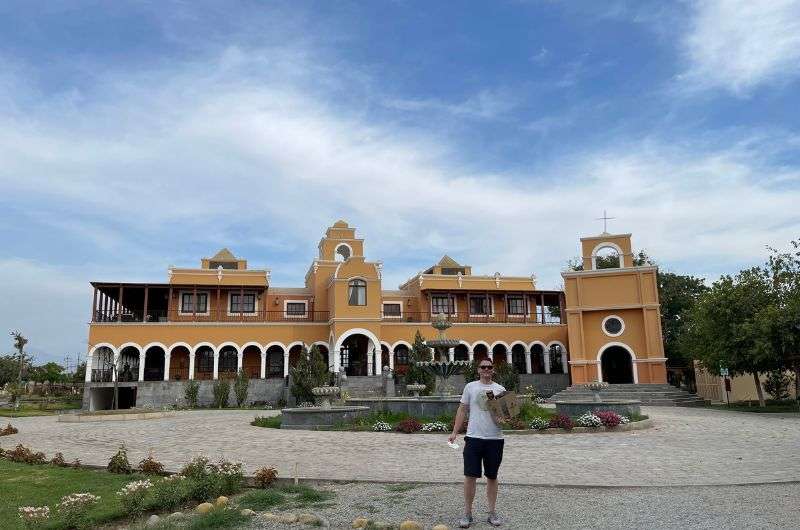
My pisco haul after visiting the oldest distillery in Peru, Destilería La Caravedo
Easy. I book the room with a free cancellation policy first—it costs a bit more, but it gives me flexibility while I figure things out for the rest of my travel itinerary. Once I’m 100% sure I’m going, I cancel that booking and rebook the same room with the cheaper, pay-upfront rate.
This way, I lock in the room I want early, and when my plans are set, I save 10–20% just by switching to the non-refundable option. Hotels love getting their money upfront and avoiding no-shows, so they reward you for your commitment.
9. Scoring free upgrades (without being that guy)
Want to know the real upgrade game? Real travel pros have it figured out—they score free upgrades like candy. Those fancy American Express Fine Hotels programs? They basically guarantee upgrades when available.
But here's my favorite trick at the front desk—never ask for an "upgrade." Instead, try: "Any chance there's a room with a better view?" or "Are there any rooms on higher floors?". Hotels overbook standard rooms all the time, and guess who gets the sweet upgrades? The nice, flexible folks.
Timing is everything. Hotels assign rooms 24 hours before check-in, so that's when to mention your anniversary or birthday. I once got a suite upgrade in Bangkok just by offering to switch rooms mid-stay if something better opened up.
The real secret? Build relationships. I keep going back to this one hotel in Rome, and now they treat me like family. Some places even flag repeat guests as VIPs. But remember—city hotels might have fewer fancy rooms than resort properties, so keep your expectations realistic.
Being genuinely nice goes further than any loyalty status. I've seen entitled "elite" members get nothing while friendly guests get surprise upgrades. It's all about the vibe you bring!
The moral of the story: Just ask.
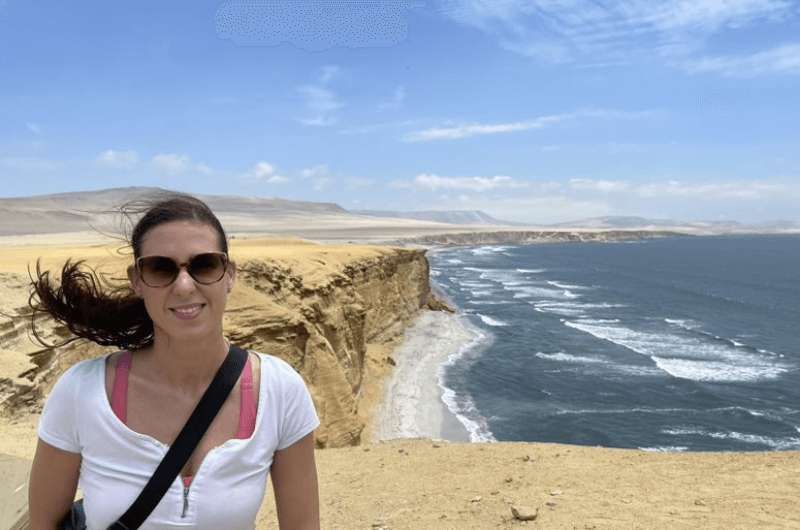
The amazing coast in Paracas, Peru
10. Notifying the front desk of special requests
Notifying the front desk of special requests can help ensure that your stay is comfortable and enjoyable. Here are some special requests I usually consider:
-
Room Upgrades: If you’re celebrating a special occasion or want to treat yourself to a luxurious stay, consider requesting a room upgrade. Some hotels offer upgrades to suites or rooms with additional amenities. It never hurts to ask!
-
Special Amenities: If you have a specific amenity in mind, such as a coffee maker or ironing board, be sure to request it when booking your room. Some hotels may offer additional amenities like a microwave or dishwasher, so don’t hesitate to ask.
-
Dietary Restrictions: If you have dietary restrictions, be sure to notify the front desk. Many hotels offer special menus or accommodations for guests with dietary restrictions, ensuring you can enjoy your meals without worry.
-
Accessibility: If you have mobility issues, be sure to notify the front desk. Some hotels offer rooms with roll-in showers or grab bars to help you navigate the room. Making these requests in advance can ensure your room is ready for you.
-
Quiet Room: If you’re a light sleeper, consider requesting a quiet room. Some hotels offer rooms with soundproofing or white noise machines to help you sleep better. A quiet room can make a significant difference in your rest quality.
By communicating your needs to the front desk, you can ensure a more comfortable and enjoyable hotel stay.
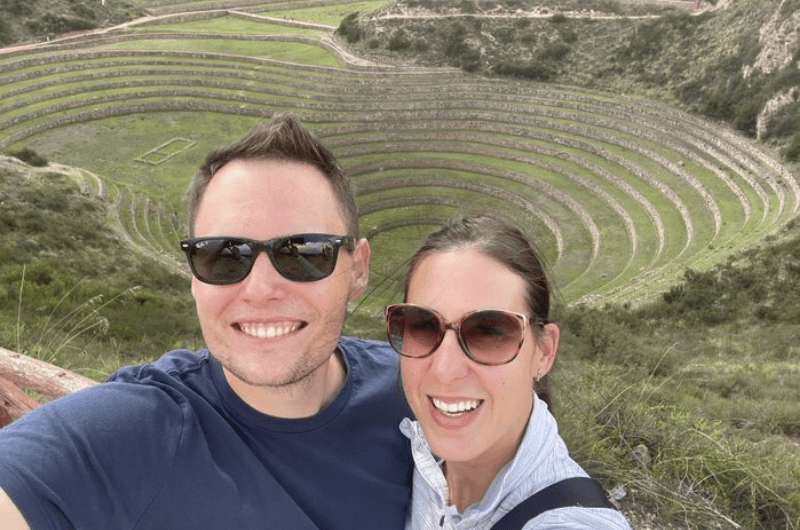
Another day in Sacred Valley, another Inca gem
Top tip: Your hotel booking confirmation can also be required at immigration at some international airports. Read my checklist and FAQs about travel documents if you're getting ready for international travel!
FAQ 1: What's the best way to get discounts on hotel bookings?
Join hotel loyalty programs and use rewards credit cards to earn points for free stays. Many programs offer member-exclusive rates and perks like free upgrades or breakfast. Booking directly with hotels often provides the best rates and the most flexibility.
FAQ 2: When is the optimal time to book a hotel for the best rates?
For most destinations, booking 2-3 months in advance typically offers good rates. However, business-focused cities may have better last-minute deals. Consider shoulder seasons (spring and fall) for significant savings compared to peak travel times.
FAQ 3: How can I find hidden hotel deals?
Use price comparison tools and set up price alerts to track rate changes. Consider opaque booking sites for mystery deals that can save up to 60%. Always check multiple sources, including the hotel's direct website, before booking.
FAQ 4: Are there advantages to booking directly with hotels versus third-party sites?
Yes, booking directly often provides more flexibility for changes or cancellations. You're also more likely to receive room upgrades, better customer service and earn loyalty points. Some hotels match or beat third-party rates when you book directly.
FAQ 5: What strategies can I use to negotiate better hotel rates?
Call the hotel directly and ask about any available promotions or discounts. Mention any memberships (AAA, AARP) or special circumstances (extended stay, off-peak travel). Being polite and flexible can sometimes lead to complimentary upgrades or added perks.
This post contains affiliate links. If you make a booking through one of my links, I may earn a small commission—at no additional cost to you. Thank you for your support!
















Comments | Thoughts? Give us a shout!